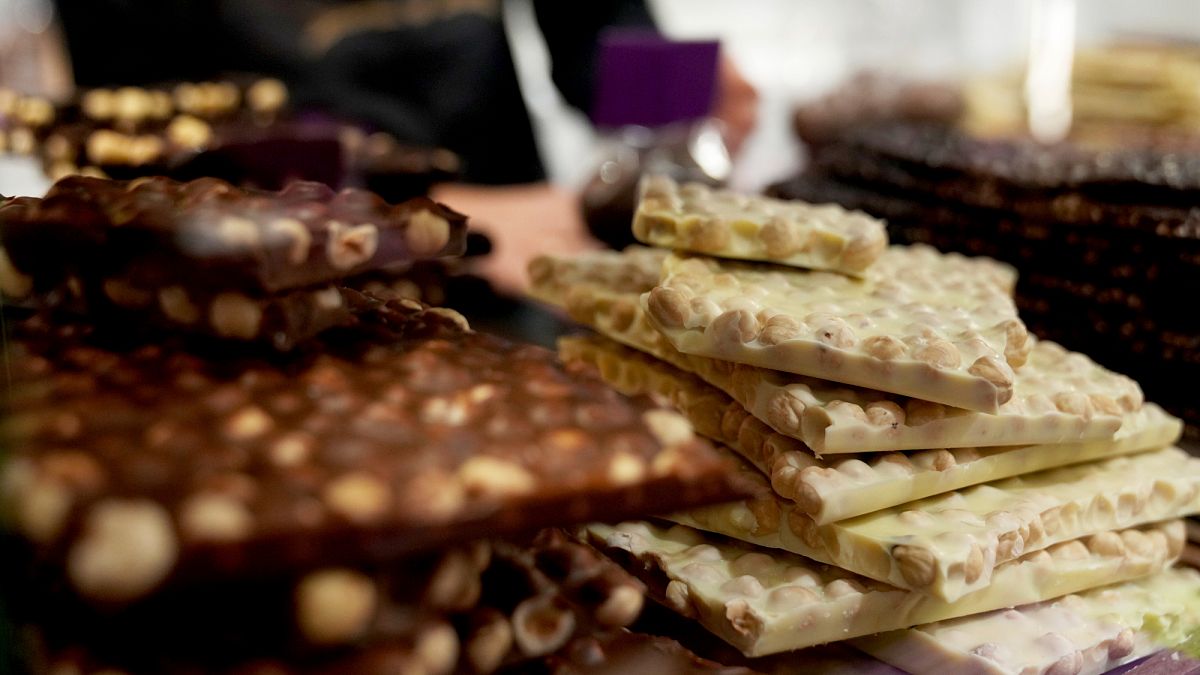This year, US consumers fond of Belgian Easter eggs and chocolates are likely to face a hefty bill.
In addition to the pre-existing 6% US customs duty on Belgian chocolate, the sweets will be subject to a 10% tariff, like most products imported into the US, to bring the total up to 16%.
“The taxes that will be applied will increase the price for American consumers. I think they will buy about the same,” Thierry Noesen, founder of the Belvas chocolate factory in Belgium, told Euronews.
What’s more, the dollar has fallen by 10%, he added, making the products even more expensive.
‘What’s difficult is the uncertainty’
Faced with the US president’s back-and-forth on tariffs, the Belgian chocolate maker doesn’t know what he’s getting.
While Noesen’s company initially considered sending an extra container to the US to get ahead of the levies, it abandoned the idea after President Donald Trump announced on Wednesday that he would suspend reciprocal tariffs for 90 days.
“For us, what’s difficult is the uncertainty, because there are going to be discussions during the 90 days, that’s what they’re for, but we don’t know what we’re going to end up with,” Noesen said.
“If we end up with very high taxes, that could reduce orders for our products from our customers, and if I’ve already started production and bought the packaging, I’d be very annoyed,” he added.
“90 days creates almost more uncertainty for us than the announcement a week before of a tax, which would be better known and everyone could react accordingly.”
It takes a month to deliver cocoa from Côte d’Ivoire to Belgium, and exports to the United States also take about a month. Therefore, it is difficult for the Belgian chocolate maker to adapt to the US president’s about-turns.
‘Chocolate shouldn’t be involved’
This chocolate factory exports a quarter of its production to the US, mainly pralines.
Its founder has high expectations of the European Union to protect Belgian chocolate from reciprocal customs duties.
“There are no (customs) duties on American chocolate in Europe. So my impression is that if we worked on a sector-by-sector basis, chocolate shouldn’t be affected” by reciprocal customs duties, says Thierry Noesen.
He does not rule out reducing his dependence on the American market by increasing his production in Germany, the UK or Austria.
Prices have also risen for Europeans following the surge in cocoa prices caused by climatic hazards and speculation.
Read the full article here


